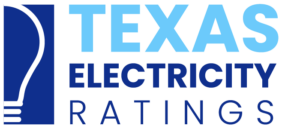Since I released my article questioning strange behavior in the ERCOT electricity market on June 29th I’ve been receiving a lot of attention. I had a very long follow-up call with the Independent Market Monitor (IMM), Dan Jones, and some of his associates. Additionally I was contacted by a reporter at Platts who wanted my comments on some of the responses my article had elicited from the Texas electricity and energy community. And of course, yesterday Potomac Economics, the company that serves as/with Dan Jones as the Independent Market Monitor, released their formal response to my blog posting. That report was subsequently picked up by the Houston Chronicle and Fuel Fix.
I have a couple minor issues with the report that was received and some of the subsequent articles written, but for the most part it was great to get detailed answers to some of the questions I posed in my original article.
One thing I did find amusing was that the subsequent article in the Chronicle refers to me as an anonymous blogger. I’m not sure if that was an effort to malign my credibility or not, and perhaps I’m misunderstanding some nuance here, but I suppose I didn’t really consider myself that anonymous. I freely gave Dan Jones my name and position when we first spoke, and I followed up his request for my contact information when he inquired through Texas Electricity Ratings so we could have a follow up discussion. The reporter from Platts had no difficulty finding my name contact information, either. The Chronicle never inquired my actual name, or even could be bothered with a simple Google search, apparently, so I suppose that makes me anonymous in their eyes. I suppose I’m glad that other people didn’t seem so quick to dismiss my questions simply because they thought I was “anonymous.”
On a more serious note, after speaking with Dan and his colleagues, it appears that I was absolutely mistaken in my article when I said ERCOT might have violated protocol in their late notices for the Day Ahead Market (DAM) report and a lack of notice. They were, by all accounts, 100% in line with their protocols and requirements for sending out notice that the DAM report would be late, albeit extremely late. So I was absolutely mistaken in that regard and will own up to it. ERCOT got it right, and I got it wrong.
Additionally, I want to say that when all of the reports have come back as resoundingly as they have stating that no one believes there was any manipulation, I believe them. I’m surprised at just how quickly they came to that confident a determination and got a definitive report back stating with certainty they didn’t feel there was any manipulation, but then again that is what these folks do for a living and everyone seems certain there was no manipulation. And their explanations make sense. So that is great news.
Now that being said, while I was reading through the report, there is also some other good news. Specifically this line that begins at the bottom of page 1 of the IMM’s report:
one inquiry on June 28, 2012 was followed with a public posting on an online “blog” on June 29, 2012, which generated additional interest and questions from market participants, interested stakeholders, and elected and appointed officials.
I consider this to be great news. First, the fact that I wasn’t the only person asking questions, including other “stakeholders” and political officials indicates to me that there are people from all different circles monitoring how the Texas electricity market behaves. Hopefully this kind of attention from lots of different and unrelated parties act as an additional barrier for any group that might ever consider any kind of market manipulation.
Additionally, whether the response by the IMM was a direct response to my article or not, or if it was just an easy illustration that the IMM used to answer questions, it doesn’t change the fact that the article I wrote was cited heavily in his report to ERCOT. It makes me feel better that people like myself with questions can voice them in a manner that will promote honest, detailed responses and conversation from the people responsible for monitoring and policing the Texas electricity grid and marketplace. Its vital people trust the marketplace for deregulated electricity to work, not just in Texas, but everywhere.
